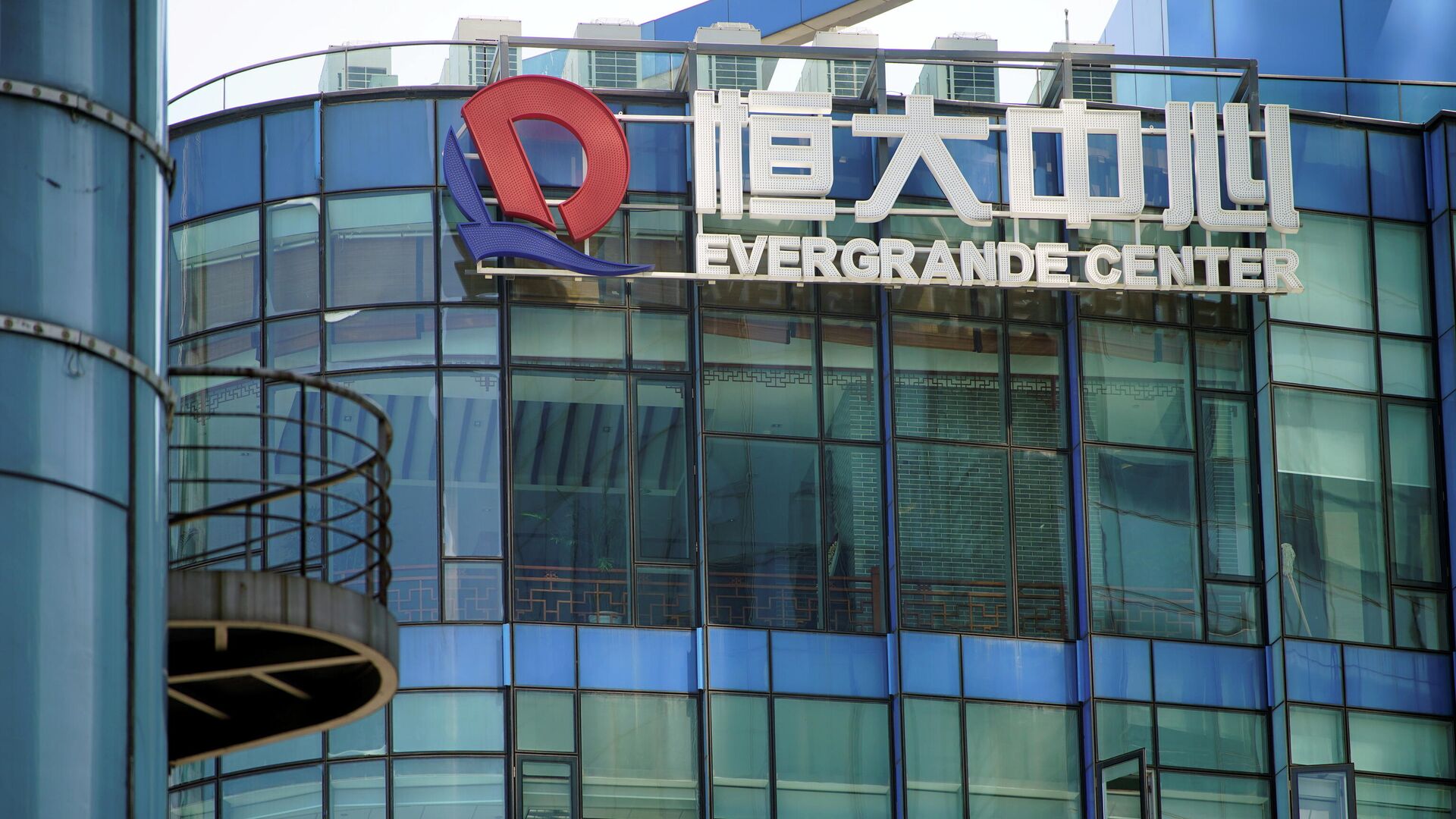What is China Evergrande and Why Might It Collapse Under Weight Of Its $305 Bln Debts?

© REUTERS / ALY SONG
Subscribe
The Chinese property company Evergrande could default on US$19 billion of international market bonds on Monday. If it does it would be the biggest default ever in Chinese corporate history.
Shares in the giant Chinese corporation Evergrande fell 14 percent on Thursday after it confirmed a US $2.6 billion asset sale had fallen through.
The failed sale to Hong Kong-based Hopson Development Holdings will make it virtually impossible for Evergrande to meet a coupon payment - which is already overdue - by the deadline of Monday 25 October.
Evergrande - which has total debts to international bondholders of US $305 billion - issued a statement in which it said: “There is no guarantee that the group will be able to meet its financial obligations.”
Evergrande is about to default…
— Antonio Martinez (@AntonioTheMexi) October 21, 2021
BREAKING: China Evergrande has announced that a $2.6 billion stake sale in its property services unit has failed. Evergrande sinks 10.5% pic.twitter.com/gWXwuDYid5
So what is Evergrande?
Formally known as the China Evergrande Group, it was founded by a former steel industry executive, Xu Jiayin in 1996.
Based in Shenzhen in southern China, it surfed the wave of the booming Chinese economy between 1996 and 2018, selling apartments in the growing cities to middle and upper income earners.
In 2009 it was listed on the Hong Kong stock exchange for the first time and raised HK$70.5 billion, making Xu Jiayin the richest man in China at the time.
Xu, who is known as Hui Ka Yan in Cantonese, bought the struggling Guangzhou football team in 2010.
He renamed it Guangzhou Evergrande, signed up world-class players like Lucas Barrios and coaches like Marcello Lippi and won the Chinese Super League eight times between 2011 and 2019.
Evergrande diversified from property into bottled water and electric vehicles.
But in August 2020 the government imposed new rules on property developers which hit Evergrande hard and forced it to offload properties at discounts which were virtually giveaways.
The Chinese economy has struggled in the last year and new home prices fell last month for the first time in six years.
Evergrande has only been able to sell 405,000 square metres of property in the normally lucrative months of September and October so far - normally a peak period for sales.
Those sales amounted to just 3.65 billion yuan (US$571 million), compared to 142 billion yuan (US$22 billion) the year before.
Evergrande, Fantasia, Sinic ... all property developers that are defaulting.
— Wall Street Silver (@WallStreetSilv) October 18, 2021
The debt markets are closed to the China property developers. That industry cannot function without short term debt. Can't pay subcontractors.
20% of China's economy is property dev.#Evergrande pic.twitter.com/HWsqcJpAFe
The Daily Mail said the collapse of Evergrande “risks sparking a contagion beyond China that could cause a 'Lehman-style' collapse of the global financial market.”
The New York bank Lehman Brothers collapsed in 2008 owing US$35 billion and worsening a global financial crisis.
The Reserve Bank of Australia said earlier this week: “While Evergrande is small relative to the financial system in China, members noted a financial stability risk from spill overs to other developers and financiers if the resolution of Evergrande's problems were to be disorderly.”
